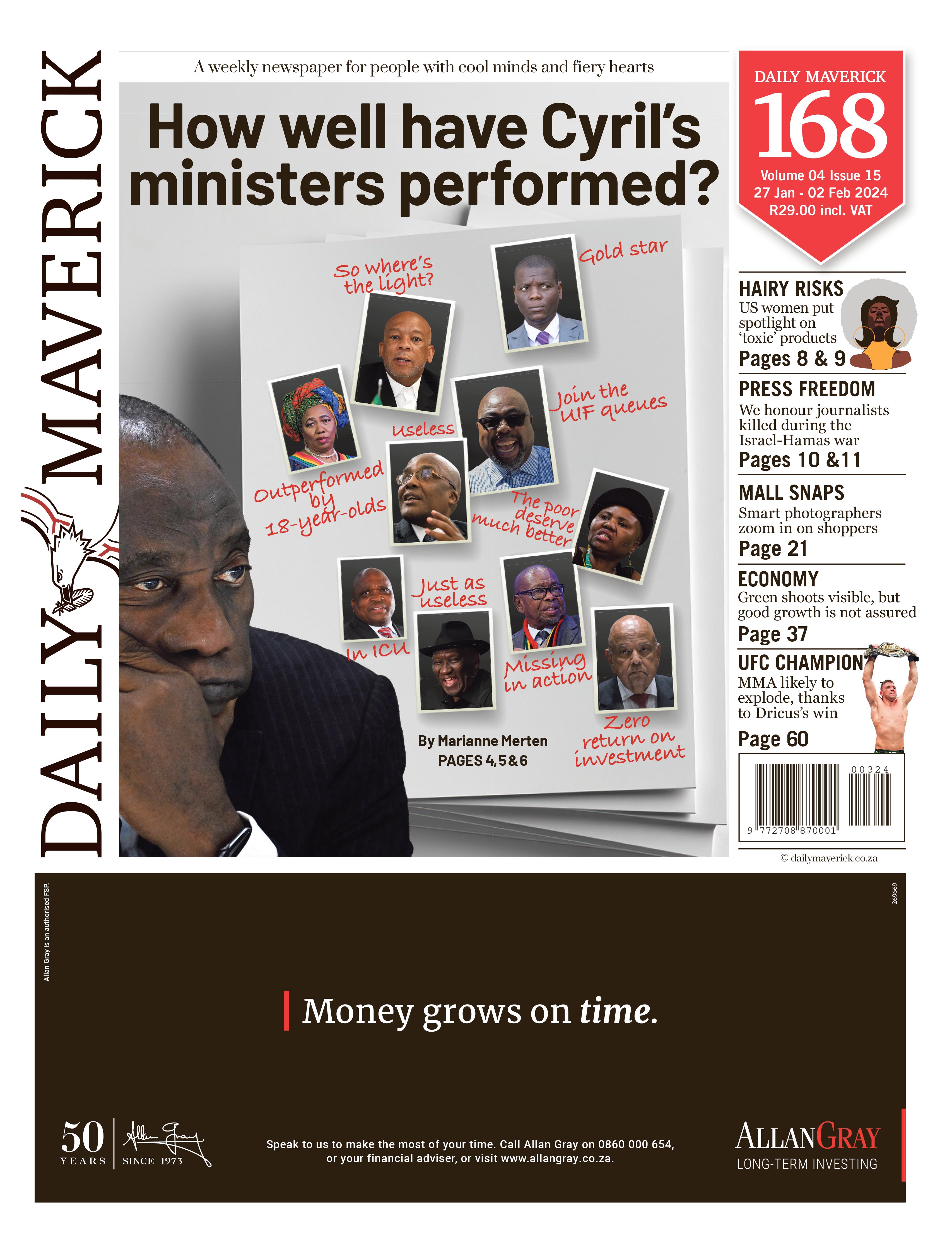Now throw AI into the mix. A Reuters report, Journalism, Media and Technology Trends and Predictions 2024, released in January, predicts AI will “sweep the information landscape” at a time of huge political turmoil — including elections in more than 60 countries this year.
A gobsmacking prediction is that the vast majority of internet content will be synthetically created. This should raise, and knit together in furrows, all our eyebrows. We will surely need specialised human oversight given the misinformation and disinformation that will be spread by technological error and human manipulation.
Nic Newman, author of the report’s summary, calls for an urgent rethink of the role of journalists and of news distribution.
There are likely to be more barriers to getting paid for news and for getting news out, notably investigative articles that take a long time to produce.
In South Africa, there is no one option or one media, but different ideas and experiments in AI, fact-checking and paywalls.
We can say for sure that this is going to be a rough year for journalism in South Africa. Lies and vilification will be spread about this media company and that; cameras and journalists will be thrown out from where crooks don’t want to be spotted; there will be attempts to lead journalists astray in a sharply contested election.
In 1994 we knew the ANC would win. Now it’s a matter of how close to 50% it gets and what coalition it governs with.
Another twist may be that President Cyril Ramaphosa abandons his habit of not holding pressers and turns to the media in the hope of validation before the poll.
Political parties, and politicians competing within the same party, want the limelight and will try all sorts of tricks, especially with the public broadcaster, to get airtime. Politicians will offer brown envelopes — to write a story or to quash one. There will be “leaks” and “exposures” to journalists. Some will be valid, others not. Either way, fact-checking and double fact-checking will count for everything.
The news year started with a bang with the exposure of previously celebrated economist Thabi Leoka, who lied about having a PhD from the London School of Economics.
The value of digitisation is that sometimes digging to get to the facts does not have to be very deep. Dissertations and theses are online and no longer collecting dust in university libraries and archives. Kudos to the media for digging, even though it wasn’t that deep. But this saga exposed more than Leoka’s deception; it also showed up the presidency and private-sector boards for weak governance oversight into CVs. One board after another will announce her resignation, looking a bit sheepish.
A PhD certificate is circulating on X, without a date and, for those who don’t know, it may be complicated to establish that this is a fake. Just remember that theses from reputable universities are online, with the actual date: day, month, and year of the conferring.
Social media influences
Social media has made the world smaller. Only in your dreams can you imagine you do a little interview on radio and wave away a query. Things spill over onto different platforms and take on a life of their own. Media is powerful, ubiquitous, useful — and toxic.
Thank goodness for our courts, which rule according to the Constitution to uphold media rights. The case of former president Jacob Zuma against News24 legal journalist Karyn Maughan was thrown out with costs. The aim of those who take to court when they don’t like uncomfortable truths being told is to bully, intimidate and try and make an example of someone, so that others don’t do the same.
Changes in journalism due to social media and apps are so rapid that, not long ago, you wouldn’t have imagined a session on using TikTok and YouTube at an earnest event such as November’s African Investigative Journalism Conference at Wits. But there I was, listening to investigative journalists from all over the world talk about gaining traction from social media apps.
A digitally connected world means lies get found out quickly. Lying about qualifications is fraud and ruins a reputation. Media no longer have short memories. If crooked politicians try to twist their way back into public life, someone on social media will point out earlier transgressions. You can’t go far.
Social media platforms are going to be carrying lots of disinformation and misinformation, including conspiracy theories, in this difficult period of mushrooming political parties. These platforms are worth watching, making the task of more reliable mainstream media difficult. Then there’s what’s spread on WhatsApp groups; but that’s for another story. DM
This story first appeared in our weekly Daily Maverick 168 newspaper, which is available countrywide for R29.



















 Become an Insider
Become an Insider
As one without any journalism background I have a question about what you call “pressers”. How is it that long established journalists with significant ‘experience’ don’t ask any ‘serious’ questions at the pressers and ‘push back’ as many of the slimy, slithery, and evasive or meaningless answers they are given? Are they like during the Trump admin afraid of losing something called ‘accreditation’? In the meantime journalists across Palestine are daily being assassinated by the IDF in record numbers ! And fellow journalists at ‘mainstream’ organisations say nothing about it ? Are other journalists complicit in the genocide/slaughter of fellow journalists going on in Palestine ?
This of course is compounded by the fact that media outlets themselves have become more biased in the last few years, often sacrificing bias free reporting to push their own political views. This is true for both ends of the political spectrum, but probably a little more for the right. You definitely can’t take most of what FOX news publishes at its face value, but for some topics the New York Times for instance you can see heavy bias to. This is the reason all of us should read news from both sides of the political spectrum, and always question what is written. Even here on the Dailymaverick I often see journalists omit or downplay inconvenient truths that don’t suit their agenda. This has always been the case to a degree of course but in the last few years it seems to have become much more partisan and divisive. Gone are the days where we can debate topics without ad hominem attacks and moderate opinions.